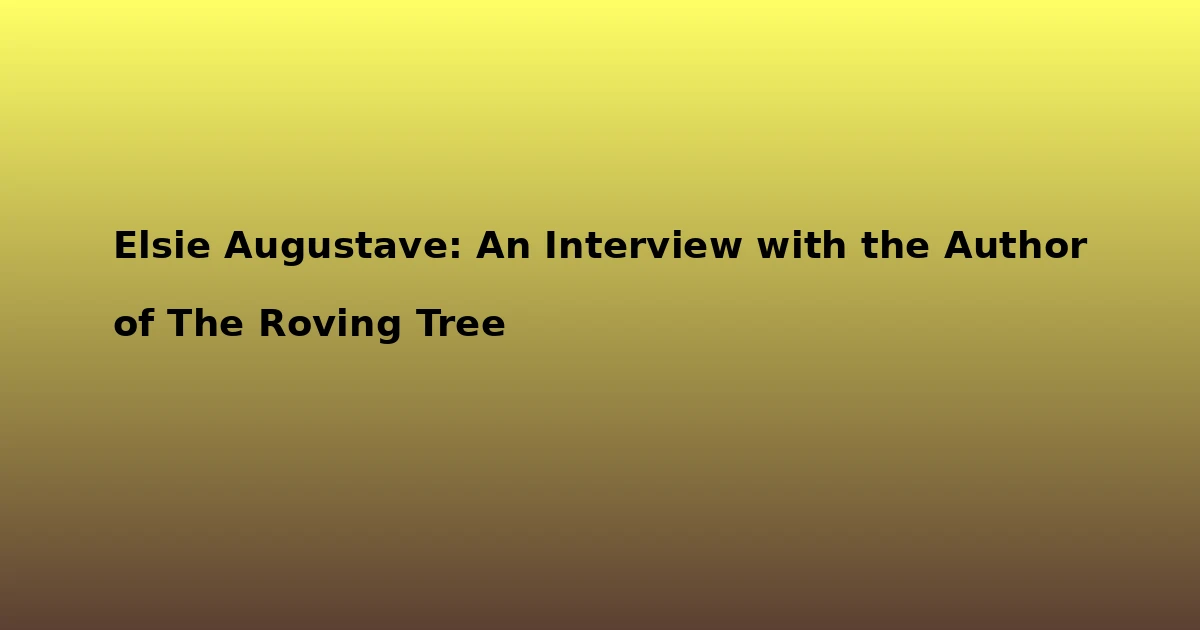The Oxford Dictionary the word quintessence as “the most perfect or typical example of a quality or class.” Surely, that is the definition that most think of when they think of the word.
That same dictionary offers yet another definition of the word: “a fifth substance in addition to the four elements, thought to compose the heavenly bodies and to be latent in all things.”
This latter definition may well apply to Emeline Michel’s latest album Quintessence. It has all the four elements one has come to expect from an Emeline Michel album: excellent overall packaging, engaging lyrics, memorable melodies, and succinct arrangements.
Now, the fifth element has got to be Michel’s smoking hot voice that can sound softer than the flow of a fountain one moment, and go to she-man levels if need be, depending on what she is singing.
In this newest opus, she rallies the quintessence of herself, the best of herself, so to speak, and invites the company of Yayoi Ikawa (who plays piano on seven songs), the Martinique-based artist Kali, as well as seasoned musicians like Dominic James, Makarios Cesaire, Monvelyno Alexis, Dener Ceide, Frantz Benjamin, Jean-Amedé Caze, Boulot Valcourt, Daniel Bernard Roumain, Nicky Christ.
Quintessence is practically the meeting chamber of Haiti’s artistic colony: Jean-Claude Martineau, a lyricist of legendary status, Michel’s “Soufle Van” partner from Rasin Kreyol, James Germain is in the room—as are writer Yanick Lahens, who lends to the lyrics department (“Ton Yanvalou”) and Edwidge Danticat, who wrote “Dawn”.
One of Michel’s early career collaborators Ralph Boncy resurfaces with “Timoun”.
Michel shows off her range capabilities, using her lullaby voice to bring the lyrics of “Terre Mouillée”—written by Inna Césaire, the daughter of celebrated Martinique writer and thinker Aime Césaire—to life. The song speaks of a chapel in the quiet woods, and the overall serenity of life.
Truly, Michel is one of those rare Haitian singers who gets better—who takes things up a few more notches—with each album. One only needs to study her career, and listen to her albums—in order of their original release—to see her evolution.
She’s the songstress who, with each album, makes her fans think that surely she will not be able to surpass this one with her next release. But Michel manages to sew everyone’s mouth shut each time. She meets the challenge again and again and manages to outdo her track record and then some.
The language distribution of Quintessence caters to the three segments of her fan base. The album consists mostly of songs in Creole.
There are two songs in French (the violin-streaked “Ton Yanvalou”, for one) and there is one in English (“Freedom Bound”), reflecting Michel’s renewed courting of English language fans. But her music has never really needed any translation. It’s the type of music that speaks in tongues by default.
“Mèsi Lavi”, with lyrics that delineate gratitude and thankfulness, is immediately prophesied as being one of the album’s best tracks—and this at the first listen. Curious sequencing. Feels as if it should have been the song that closes off the album. But gratitude ought to be expressed first and foremost, and should not be an afterthought.
While “Mèsi Lavi” demonstrates the importance of expressing gratitude, “Djannie”, takes on a more somber topic—the rarely spoken-about issue of domestic and relationship violence in Haitian society. Michel’s voice takes on a forlorn note:
Li frape ou, ou pa di anyen
Ou di ou kase, ou pa ale, ou mare
Mwen santi kè wap rache
Ou konnen sa pap mache, ou mele
He hits you, and you don’t say jack
You say you’re broken, you won’t leave, your hands are tied up
I can feel your heart breaking
You know it won’t never work, you’re screwed
Besides “Djannie”, the only other song that treats domestic violence in the Haitian music genre that immediately comes to mind is “Pa leve men Sou Li” [Don’t Put Your Hands on Her].
And that song is so apparently tailored for the dance floor, that one wonders if party goers ever really take the time to fully digest the lyrics and its message.
The message in “Djannie” will likely not be lost. The words aren’t upstaged by the melody, though there is this sisterhood chorus that threatens to do so from time to time, but meaningful words and catchy chorus are able to co-exist.
The songstress as mentor and advisor lectures Djannie in a one-on-one conversation, and tutors her on self-love, and respect for one’s personal temple.
Oh Djannie, mmmh, dezole…
Bay kou bliye, pote mak sonje
Fò’w chape
Lanmou se lonè, se respè
Louvri je’w
Ale…
Oh, Djannie, so sorry
The one who gives out the blow always forgets, the one who receives the blow remembers
You have to get away
Love means honor, love means respect
Open your eyes
You’re saving your life
And you’ll find healthy love
Go up and leave
Anticipating excuses, phony alibis, and make-believe explanations on the part of both abuser and victim, Michel continues:
Yon fwa, de fwa, pa dènye fwa
Pa twompe’w
Yon moun kap frape’w
kap blese’w
Apre sa mennen flè, karese’w
Pa renmen’w
Nou tout vle yon zepòl, de bra pou sere’n
Men nou pa vle de men ki ka touye’n
Ale…
Once, twice, but this won’t be the last time
Don’t lie to yourself
Someone who hits you
Who makes you bleed
Then comes around bringing flowers, hugging you
Doesn’t love you
We all want a shoulder of support to lean on
We all want to be in someone’s tight embrace
But we don’t want to have arms around us who’s trying to kill us
Go on and leave
“Djannie” is a great addition to Michel’s social consciousness song collection. One is reminded of her rendition of “Viejo”, that treats the plight of Haitians and Haitian-Dominicans in the bateys of the Dominican Republic.
If “Djannie” is about physical violence, “M Paka Dòmi” centers on another form of self-abuse, loving excessively without a hint of reciprocity on the horizon. “Li genyen kè mwen nan pòch li,” the songstress croons at one point, while Jean-Guy René hustles on percussion and Peter Stan on accordion.
He has my heart in his pocket. Woy! Now that’s some serious, if not downright clinical co-dependency.
Pocket, huh? Well, he’s got you there! What we have in our pocket is our secret, what we exclusively have access to. To have someone put an organ as vulnerable as one’s heart in another’s pocket, and therefore another one’s control is serious business, and can put the individual in dire straits.
“Dife pran nan chan kann mwen/Li pa pwomèt lap tounen”. Fire’s set on my sugar cane field/And he doesn’t promise he’ll be back. Sugar cane field! When one thinks of Haiti and its early history, one knows that along with coffee, and cacao, cotton, and lumber, this was one of Haiti’s most valuable asset during its colonial period.
A woman’s sugar cane field is everything that makes her a woman. This song is, therefore, for every woman who’s fallen in love with careless abandon without a thought of tomorrow.
It’s for every woman who’s handed her heart to a man, and who doesn’t care if her love doesn’t get reciprocated; she’s only living for the time being.
It’s for every woman who’s set herself up to be hurt; who puts the passion and heat of the moment and gives it seniority over her feelings, and ignores the consequences of tomorrow, and the future itself. No wonder chronic insomnia is part of the equation!
Melody-wise, the song is so bluesy, that a mental tableau immediately unfolds in the mind of listener: an alley in New Orleans’ jazz district. Then one is transported in a studio of black jazz musician expatriates in Paris before landing in Haiti in the 1920s Haiti in the minds of men like Justin Elie.
The last stop is somewhere where Haiti meets New Orleans, in the early 1800s when St. Domingue refugees made a run for it for the shielding colonial houses of NOLA.
“M Paka Dòmi” marks the first time in years that Michel has re-teamed up with producer Fabrice Rouzier, who is responsible for the production work on “Flanm”, unquestionably one of Michel’s biggest career triumphs. This time Michel is writer and producer, while Rouzier takes on arrangement duties (they split the work for two other tracks “Timoun” and “Pran Menm”).
And it’s some musical reunion, the type that’s really worth celebrating.
Thankfully, Quintessence is also about the beautiful aspects of love, and this is manifested in the song “Pran Menm” [Take Hold My Hand], which features saxophonist Jowee Omicil. Now, that song is very reminiscent of another Michel song, “Pa Gen Manti Nan Sa”, in that it’s just plain romantic.
The easy-going ballad celebrates the sweet pleasures of a woman loving a man and the sheer beauty of having a drama-free relationship. But wait! Turns out it wasn’t always that way! Towards the beginning of the song, Michel hints at past turbulence: “Mwen se yon vòlkan ki pral reveye [I’m a volcano/That’s about to wake up].
Clearly, the song is about a couple who loved each other once, who for one reason or another had to separate for their own good. Now more mature, and infinitely wiser, and having had time to contemplate on their past actions—including errors—they’re ready to give it another try.
“Se yon lòt chapit/Nap kòmanse/Pran chans ou/Mwen pap prese/M ap pran tan mwen, [It’s another chapter/We’re about to begin/Take your chance/I’m not in a hurry/I’m taking my time]” hints at past immaturity, impulsiveness and stupidities. Ah, now the two lovers in “Pran Men Mwen” can finally take a more serious and happier go at it this time around!
Aww.
Music is poetry too, and “Dawn” has an intro featuring the award-winning writer and author Edwidge Danticat. The chorus is marvelous, and has the flair of a church assembly sermon interlude. “Dawn” mourns Haiti’s tragedies, its constant shedding of tears, and even features a roll-call of those who perished in Haiti’s 2010 earthquake.
The song preaches that in spite of enduring things that should inspire endless moaning and groaning, Haitians should draw on their inner strength and move forward. “Timoun” practically echoes the same thoughts, with the enthusiastic singing of a kiddie chorus to add to the hope-filled atmosphere of the song.
“Yon Mirak” [A Miracle], another song that is sequenced further down on the album, follows the same theme, this time with Michel conveying disillusionment about the state of her homeland: “Twòp avèg siyen pou dirije/Nou paka wè ki bò nou prale [Too many of the blind are signing up to lead/No wonder we can’t see where we’re going].
A few tracks later comes “Kè M Ap Sote”, [My Heart’s Skipping] which could be taken as a sequel of sort to “Pran Men Mwen”.
It’s the last stage of love, where there is a definite friendship, and it’s no longer about youthful passion but about grown-up love, where cooking for a man (“Manje a finn kwit”…the food is done) is not regarded as an affront to one’s feminism but as a gesture of love, of true love, and nourishing that love.
Quintessence couldn’t have been more aptly named. It displays the essence of who Emeline Michel is, and what she represents as a humongous musical talent. The record has the musical genius of Rasin Kreyol, the lyrical richness of Reine de Coeur and the musical wealth of her Best Of collection.
But it’s something much more on its own, the type of album that leaves the listener with such satisfaction that a certain wonder builds up regarding Michel’s next album: will she be able to beat the quintessence of herself?
[Haiti street photos credit: Josue Azor]
Give your support to Haitian music and Haitian artists. You can purchase Quintessence on , . Be sure to visit the artist’s website .
Have you already purchased this item? Or have gotten albums by this artist before? What are your thoughts? Be sure to sound off in the comments.
Last Updated on December 4, 2025 by kreyolicious



